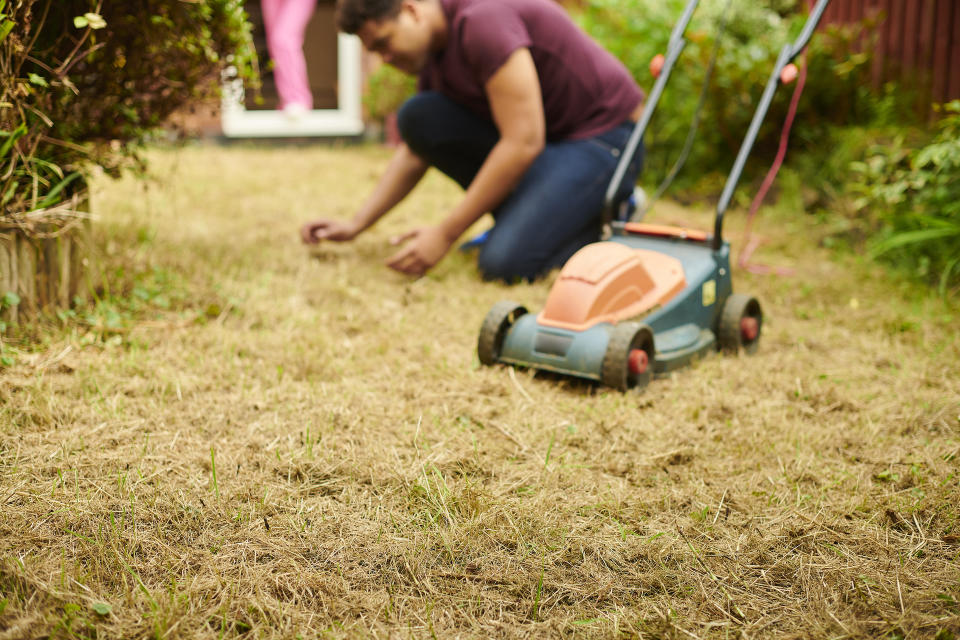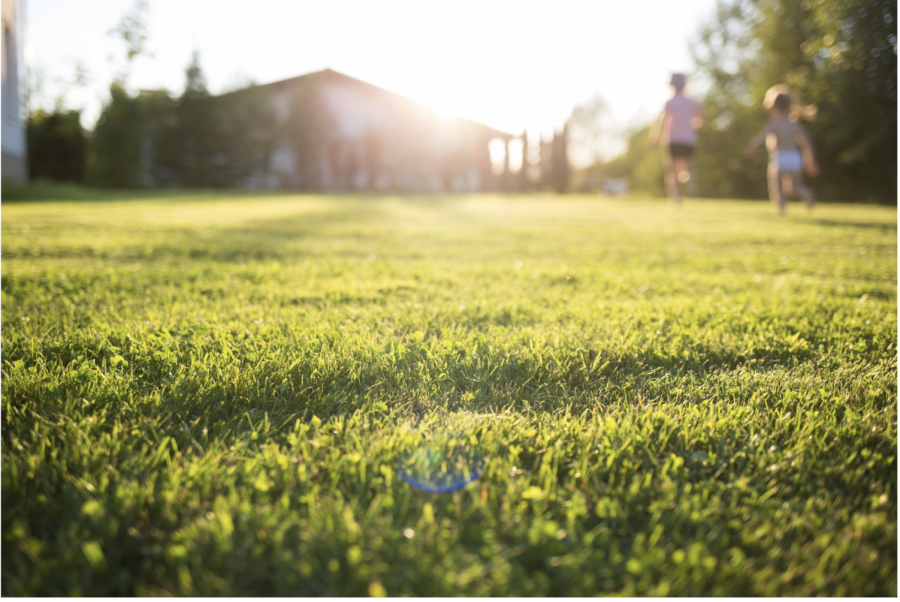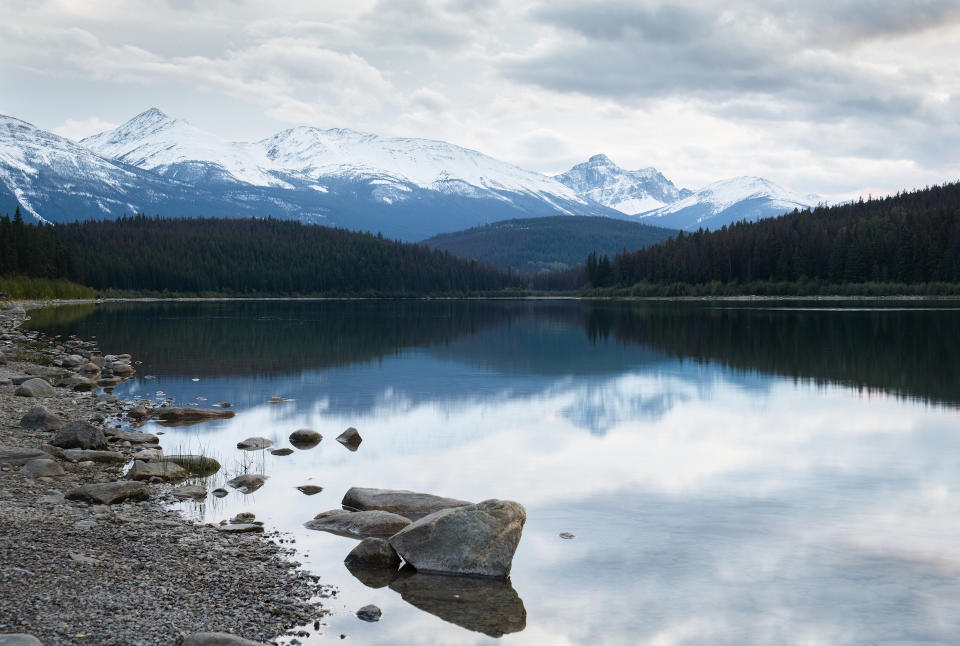Droughts can be tough reminders of importance of water conservation
With parts of the country dealing with extreme drought conditions, they are stark reminders about how vital water is.
With that in mind, summertime can be a particularly hard time on our water supply regardless -- whether it's due to longer showers to stay cool, washing our dishes or hydrating our lawns. And when you have a lack of precipitation, it can only exacerbate the issue.
SEE ALSO: What is a flash drought? An earth scientist explains
John Richardson, a University of British Columbia (UBC) freshwater scientist and professor in the faculty of forestry, told The Weather Network in a recent interview that simple ideas such as cutting down on shower time can reap tremendous benefits.

(Getty Images-1352202509)
"It starts getting to the point where we would save nearly 10 Olympic [-sized] swimming pools worth of water per day, just by reducing showers and other suggestions," said Richardson.
"When you start emptying lakes for the sake of protecting human water supply, then obviously you're having environmental damage. That's kind of where we get to the next level."
Parts of Western Canada seeing highest levels of drought
Drought and precipitation levels across B.C. have varied in recent weeks, with some areas reaching the highest levels (Drought Level 5) as a result. The tinder-dry conditions prompted the government to intervene and impose water restrictions.
"By the time we get to [Drought] Level 5 we know that there's going to be environmental damage [and] there's going to be a shortage of water for people," said Richardson. "The problem is that with the absence of any prediction around precipitation, it's just going to get worse."
The good news is that B.C. finally saw some rain for the first time in more than a month recently, providing some assistance to crews battling hundreds of wildfires, too. However, the drought situation is still ongoing and is likely to worsen without a prolonged rainfall forecast.

(Getty Images)
"Historically, summers have been quite dry in Vancouver, [but] not as dry as they have been the last couple of years. That seems to be a signal of climate change. But normally, we can count on at least some rain during the summer," said Richardson.
B.C. isn't the only province facing precipitation and water issues. The City of Calgary, Alta., placed its drought monitoring dial to dry recently, based on the tracking of precipitation levels, reservoirs and lake levels, stream flow rates in the rivers and water demand.
WATCH: Extremely hot and dry conditions cause unusual leaf drop in B.C.
The best approaches to conserving water, whether there is a drought or not
While governments have guidelines in place, Richardson said individuals can do "a lot more" to conserve water at home. As he mentioned before, one of the simplest options is to take shorter showers.
It's not uncommon for people to spend four minutes or longer in the shower, but if they can cut it to two, which is enough time to get properly cleaned, almost 20 litres of water would be saved, he added.

(Getty Images-168583229)
As well, avoiding watering lawns and doing full loads of laundry and dishes seems fairly trivial but they do add up to a "big number" if millions of people in urban settings are following suit, Richardson said.
Other water-saving measures people can do are to ensure they don't have leaky pipes and taps as those can "drip, drip, drip to a fairly large volume over time."
"Those kinds of things can also be really influential in the overall water budget when we start looking at human consumption," said Richardson. "Anything where people keep running water where it's not necessary will be essentially wasted. It just goes back down the tap or down the drain."
He said people should "keep in mind" the water supply in most regions in Canada typically goes to drinking, cooking, bathing and flushing. The resource is also used by firefighters to battle blazes.

(Getty Images)
"In Vancouver, we actually have a saltwater system that is there for emergency use. But in the short term, they still use fresh water, [which is] basically drinking water," said Richardson. "Things such as watering lawns [and] doing just a dish at a time in a full sink [are] really trivial uses of water and things that we can go without."
SEE ALSO: Why trees are shedding their leaves in the summer
Water scarcity affects land and aquatic ecosystems
In addition to a visibly dry lawn, the effects of drought can be seen in trees, which begin to shed their leaves as a coping mechanism.
"Trees will start dropping their needles in their leaves because they're so water-stressed. They just can't support them. When the ground gets really dry, the trees can't pump water from their roots all the way to the top," said Richardson.

(Getty Images-1455421037)
"The way trees get their water to their leaves is basically like a straw. Except it's a really skinny straw. When there's not much moisture in the ground, and it's a long way from the ground, it's really hard to do."
Trees are important allies to maintain cooler conditions within cities, Richardson said. A street with tree cover can often be two to four degrees cooler than areas without it, and sometimes even more.
"We know the heat islands that are created by cities can be really devastating for many, many populations," said Richardson. "Having tree cover can really reduce the requirement for people to have air conditioning or other uses that might require water."
Having a cooler, shady environment is much better for human health, as well, he added, citing studies that show it "actually does reduce stress levels in urban dwellers."

(Getty Images - 824956560)
Wasting water also has negative effects on our aquatic ecosystems since human consumption often means less available for marine life, the UBC professor stated. Wildlife such as salmon are "very sensitive to temperature."
"We here have to make sure that there's enough water in the rivers to support salmon and the things they depend upon. The smaller and smaller volumes also mean that it heats up more," said Richardson. "Some of the land uses where there are less trees can also lead to warmer water."
If salmon have less habitat because there are small volumes of water, it means the reduced amount will heat up more -- pushing the fish "very close to the edge" in terms of survival, he added.
"It is another aspect of the story that we sort of tend to forget a little bit. We get really focused on the human angle, but we do need to think about the protection of our ecosystems, whether that is the forest or freshwater," said Richardson.
WATCH: Urban tree selection changing as B.C. gets hotter and hotter
Thumbnail courtesy of Getty Images -1412651276.
Follow Nathan Howes on Twitter.

